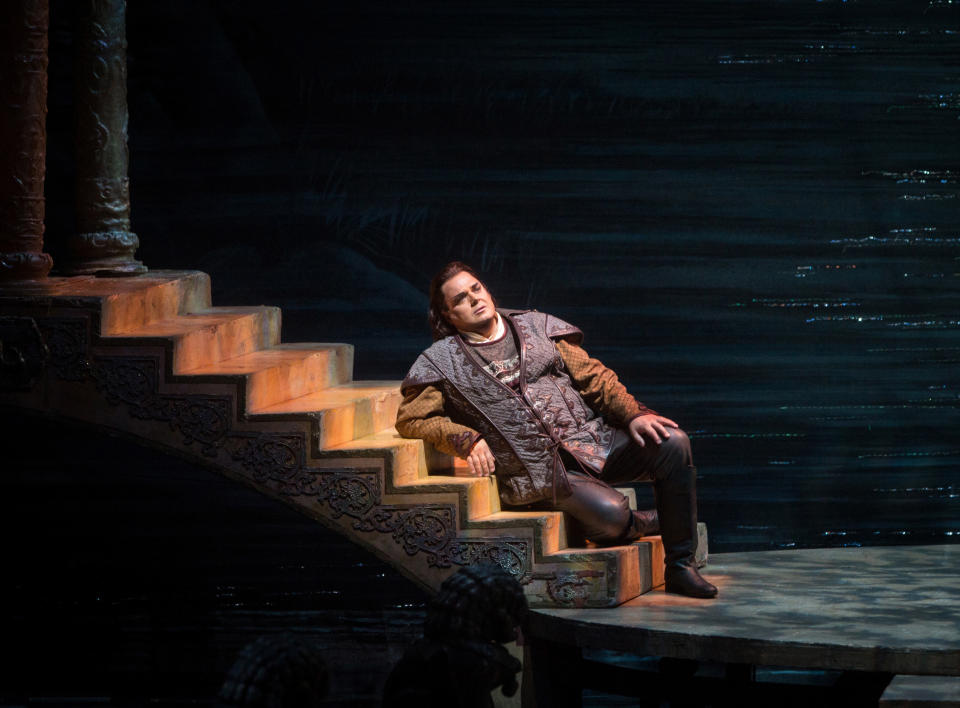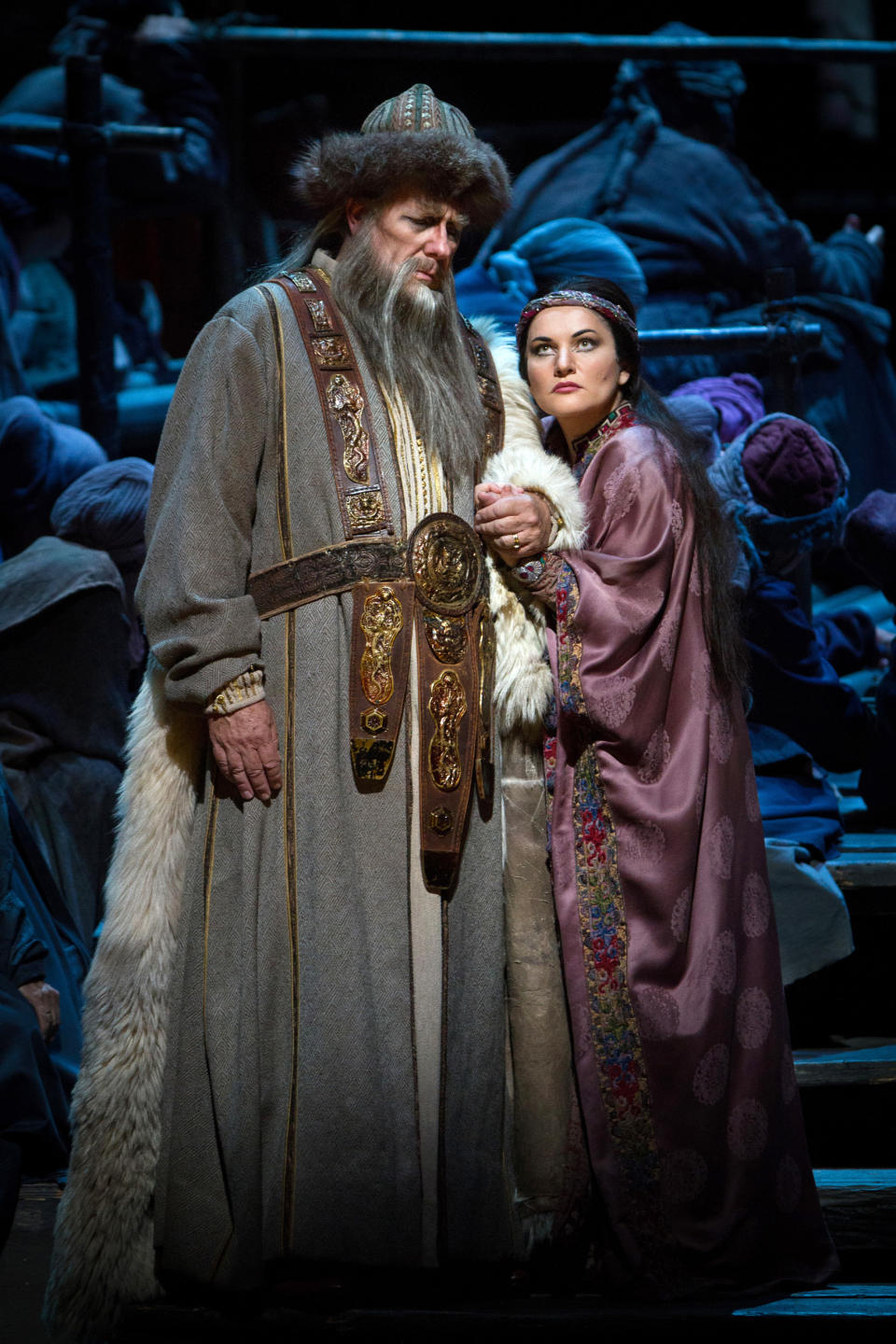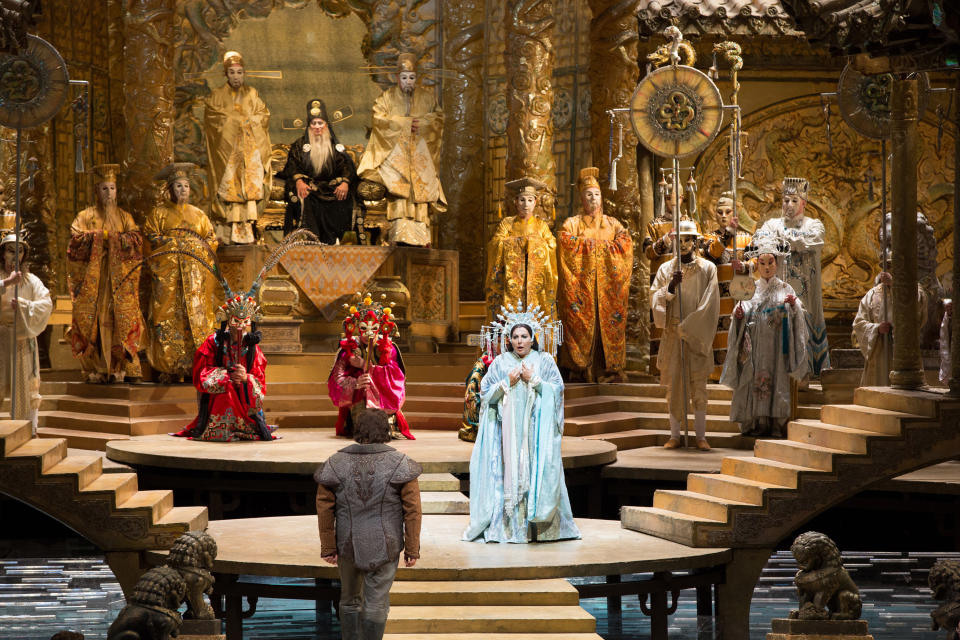Big sets, big voices: 'Turandot' at the Met
NEW YORK (AP) — After opening its season with a small-scale comedy devoid of spectacle, the Metropolitan Opera quickly made up for it Wednesday night with a revival of Franco Zeffirelli's production of Puccini's final opera, "Turandot."
This is a staging that puts the "grand" back into grand opera. Or maybe that should be "grandiose." Whatever, this fairy-tale pageant set in ancient China is one opera where the Italian director's penchant for ornate sets, lavish costumes and a stage teeming with scores of extras works well.
Now in their 25th season, the opulent furnishings are showing some wear, and the throne room took so long to assemble that the first intermission had to be extended by 20 minutes or so. Still, when the scenery finally appeared, it drew the predictable round of applause from the audience.
And to match the big sets, there were some big voices on hand for the leading roles.
Maria Guleghina, the Ukrainian soprano who has been a mainstay at the Met for 17 seasons, sang the title role of the icy princess who likes to send her suitors to their death by challenging them to answer three daunting riddles. Her big, bright voice rang out with imperious authority if little nuance in her aria, "In questa reggia," and the riddle scene that followed. But in Act 3, when Turandot melts under the influence of a kiss from the mysterious prince Calaf, Guleghina scaled back her powerhouse sound for some affecting singing.
Her co-star, Italian tenor Marco Berti, matched her in volume but not in artistry. He hit all his notes, but his tone lacked color and sounded dry much of the night. Even that reliable showstopper "Nessun dorma" made less impact than usual.
As the faithful slave girl Liu, the fine Russian lyric soprano Hibla Gerzmava shaped her two arias with warmth and nice attention to phrasing. Veteran bass James Morris brought dignity and some vocal unsteadiness to the role of Timur, Calaf's father. Baritone Dwayne Croft anchored the exuberant trio of ministers Ping, Pang and Pong, with good support from tenors Tony Stevenson and Eduardo Valdez. Debuting in the small role of the Mandarin, bass-baritone Ryan Speedo Green impressed with his strong delivery and commanding stage presence.
The chorus, given a huge role to play in all three acts, sang with vigor and precision. Dan Ettinger conducted, sometimes slowing the tempos to almost funereal pacing and struggling at times to coordinate between orchestra and singers.
Following Monday's opening with Donizetti's "L'Elisir d'Amore" and now "Turandot," the first week of the season continues with revivals of Bizet's "Carmen" and Verdi's "Il Trovatore."




